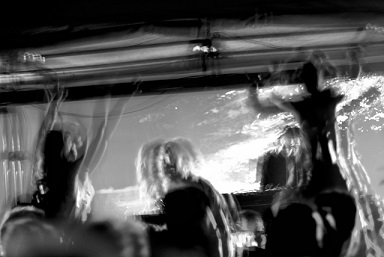Thomas Szanto, Postdoctoral Research Fellow at CFS, on collaborative irrationality, self-deception and emotion regulation biases

In times of ‘post-truth’, when ‘alternative facts’ circulate widely not just on social media but even in the most elite political arenas, one may wonder about the nature of practical and theoretical irrationality and self-deception.
How can one believe that two propositions A and B are contradictory or incompatible, have sufficient evidence or reason to believe A, indeed acknowledge those evidences and reasons as warranting one’s belief in A, and yet, believe B? Moreover, how can two or more people collaboratively engage and in such forms of self-deception and thus reinforce each other’s irrational tendencies? And what role do emotions and emotion regulation (i.e. strategies to select and adjust the situations of affective import, or modulate our attention and behavioural responses to them) play here?
These are the questions that I have addressed in a paper that has recently been published in the journal Frontiers in Psychology.
More specifically, I have pursued two objectives in this paper: (1) First, I argue that collaborative forms of self-deception are possible, and propose a novel model to analyse this phenomenon. This seems to be a crucial task. After all, in the face of great philosophical interest in analysing the possibility, structure and mechanisms of individual practical irrationality, with little exception on related phenomena (Harré 1988; Ruddick 1988; Pettit 2003 Tenbrusel & Messick, 2004; Deweese-Boyd 2010), there are surprisingly no comparable accounts of social and collaborative irrationality. However, I not only contend that these are common phenomena; moreover, I believe that, if it is true that individual practical irrationality is in the long run harmful for those who entertain it, this is even more so in collaborative cases (Goleman 1989). (2) Secondly, I argue that collaborative engagements often play a contributing or even constitutive role in entering or maintaining practical irrationality. I argue that this is often correlated to emotion-regulation (ER) biases and to a large extent indeed due to the disruptive role of collaborative irrationality on ER. In particular, I suggest that it is largely due to socially biased, motivated misidentification of one’s own affects, which eventually biases one’s affect control and also the ER-mechanisms of the group one identifies with. Finally, I show how in a feedback-loop that I call ‘collaborative spiralling of irrationality’ this ultimately reinforces the irrational tendencies of the respective parties.
In order to illustrate and empirically corroborate my claims, I draw on a series of socio-psychological case studies and, in particular, on the case of ‘groupthink’ (Janis 1982) in the context of a clinical smoking-therapy group.
The paper is an open-access publication; you can read or download it here: http://journal.frontiersin.org/article/10.3389/fpsyg.2016.02002/full. If you are interested in my related work on group agency, group minds and collective emotions you can access my papers here: https://ku-dk.academia.edu/ThomasSzanto.